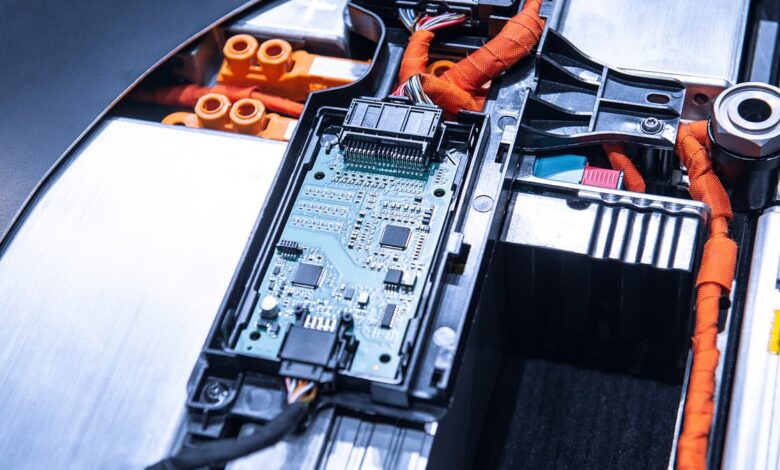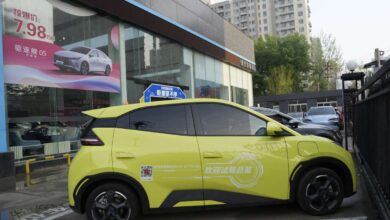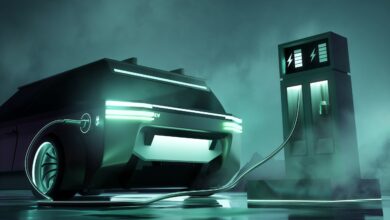EV owners say their cars are making them SICK

By Nikki Main Science Reporter For Dailymail.Com
01:59 15 May 2024, updated 01:59 15 May 2024
EVs may be safer for the environment but owners claim the vehicles are causing harm to their health.
There are growing reports of electric car drivers suffering motion sickness, dizziness and nausea from the vehicles’ braking and acceleration systems.
And a former Tesla owner has claimed that she experienced nosebleeds, hair loss and ‘debilitating’ body pains while using the vehicle she purchased in 2021.
While she was not entirely sure the Tesla was at fault, the Georgia resident and said her symptoms disappeared after selling the car.
Tesla owners have had to trade in some models because the air conditioning systems were prone to mold, which can cause asthma-like symptoms.
Tesla has been accused of being the ‘worst offender’ for causing motion sickness from its one-pedal throttle because they can be ‘very jerky and really abrupt,’ Ed Kim, president and chief analyst of AutoPacific told ABC News.
EV pedals mimic a brake pedal by allowing the vehicle to slow down or stop just by lifting your foot off the pedal, removing the need to switch between the brake and throttle like you would in a gas-powered car.
This means that there’s less wear and tear on the braking system, but also means the car will jolt forward or backward depending on how quickly you press down or lift your foot off the accelerator, which drivers wouldn’t experience in a gas vehicle.
‘Some passengers may experience uncomfortable pitching back and forth if the driver engages and disengages the throttle too quickly or too much, and that can absolutely lead to motion sickness for passengers,’ Kim told DailyMail.com.
‘You have to be so careful on how to apply the throttle… if not, it can lead to an abrupt seesaw motion for passengers.’
Yet, motion sickness is only one part of EV driver’s worries, according to a holistic health and wellness influencer @livingwellwithelle, who said she bought an EV to save money on gas prices but the payoff wasn’t worth it.
She reported that after buying a Tesla in 2021, she started experiencing fatigue after driving her vehicle and complained the symptoms got worse over time.
‘I would come home from grocery shopping and need to lay down in bed for 20 minutes before I could even unload the car,’ she said in an Instagram post.
Livingwellwithelle said she and her husband spent hours in the car and both experienced the same symptoms but it wasn’t until she took road trips in her mom’s gas-powered vehicle and experienced no symptoms that she realized something was wrong.
The symptoms escalated until she started having nosebleeds and nausea toward the end of long car rides and said she started losing her hair in the last few months of owning the car.
She added the disclaimer: ‘Am I sure the car caused these symptoms? I’m not 100 percent sure of anything.
‘Is it likely? Our symptoms are gone after selling it 5 months ago.’
There is no research supporting the claims that electric vehicles cause nosebleeds, hair loss or extreme fatigue, and Debra Holtz, a spokesperson for the Clean Transportation Program told DailyMail.com: ‘Our transportation experts at the Union of Concerned Scientists are unaware of any illnesses caused by electric vehicles.’
Livingwithelle claimed she experienced shoulder and neck pain, saying she thought the headrest was to blame because it forces the neck into a forward posture and curves the upper back.
Her post had more than 130 replies with one woman sharing: ‘My sister and brother in law had something similar happen to them. They sent the car in for repairs and it ended up being mold everywhere.
A mother commented: ‘Owned a model Y for 3 years and had major headaches, body aches, tired all the time, over all just not feeling myself. My children had the same symptoms. When I share my experiences with others they don’t believe me, I’m glad I’m not the only crazy one lol.’
However, some other users noted that because she is plant-based, her diet may have caused the issues.
Other Tesla owners have reported problems with Tesla’s air conditioning system, saying it develops mold – which causes asthma symptoms – because it doesn’t dry out, with some complaining that their cars arrived with a bad smell.
Click here to resize this module
‘My Model Y has a horrific odor from the HVAC whenever it rains. Horrible smell for days,’ one person commented on Livingwithelle’s post.
‘Had it serviced for it and they kept blaming the cabin filter, which was clean, almost new,’ they added, while others confirmed they had experienced the same issue.
Other Tesla drivers have claimed their car had mold in the heating and ventilation that filled the cabin with the smell of mold spores.
‘I paid $119,000 for this car 2 years ago but didn’t know my family and myself would have mold spores injected into our lungs,’ one owner wrote on Reddit.
Although inhaling mold spores can initially cause an asthma reaction, prolonged exposure can develop nosebleeds, blurry vision and headaches, among other symptoms.
Electric vehicles are still considered to be the better alternative to gas-powered vehicles, despite any potential risks, because of their positive effects on carbon emissions.
Meanwhile, the Union of Concerned Scientists is ‘very familiar with the adverse health impacts of gasoline-powered vehicles,’ Holtz said.
Gas vehicles’ emissions expose people to toxins like nitrogen dioxide, carbon monoxide and formaldehyde that can cause neurological, cardiovascular and reproductive issues.
DailyMail.com has reached out to Tesla and the National Traffic Highway Administration for comment.



